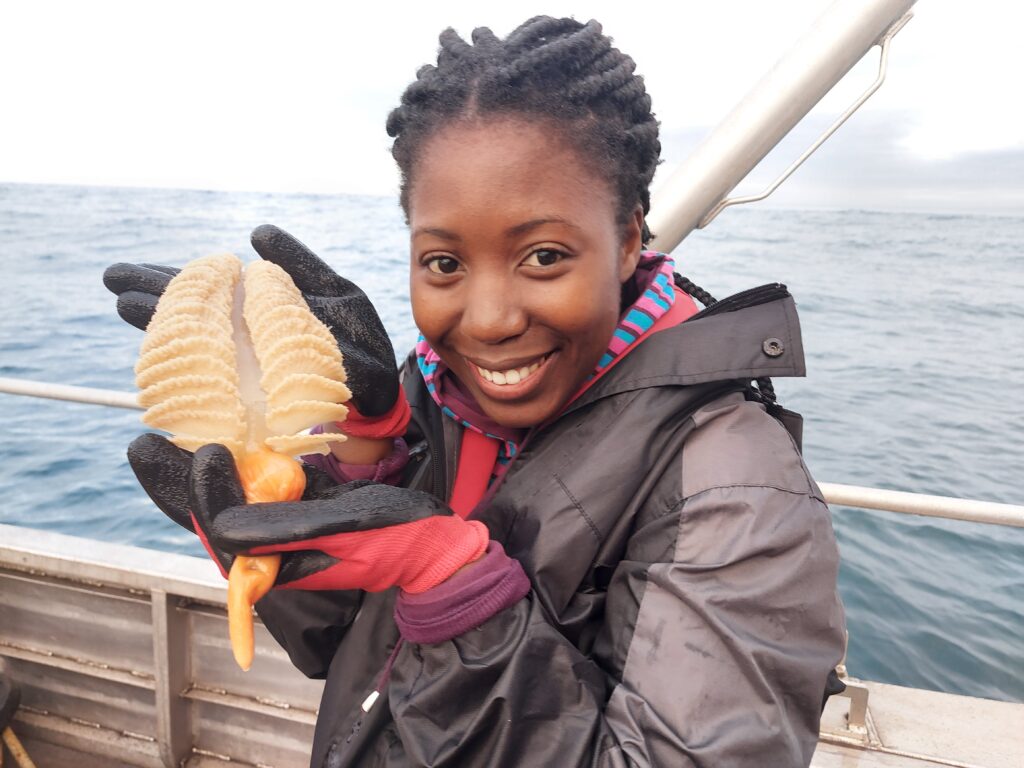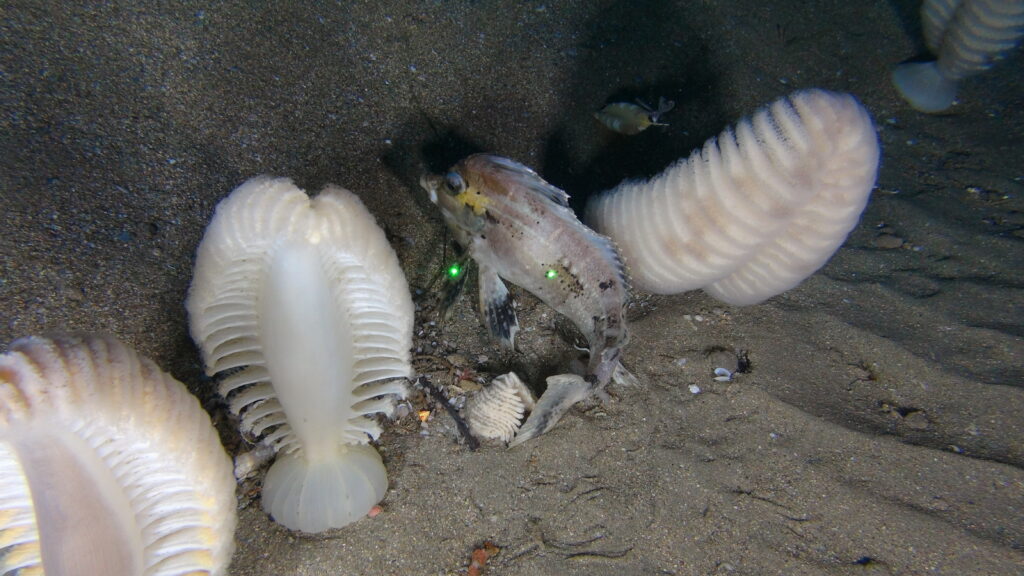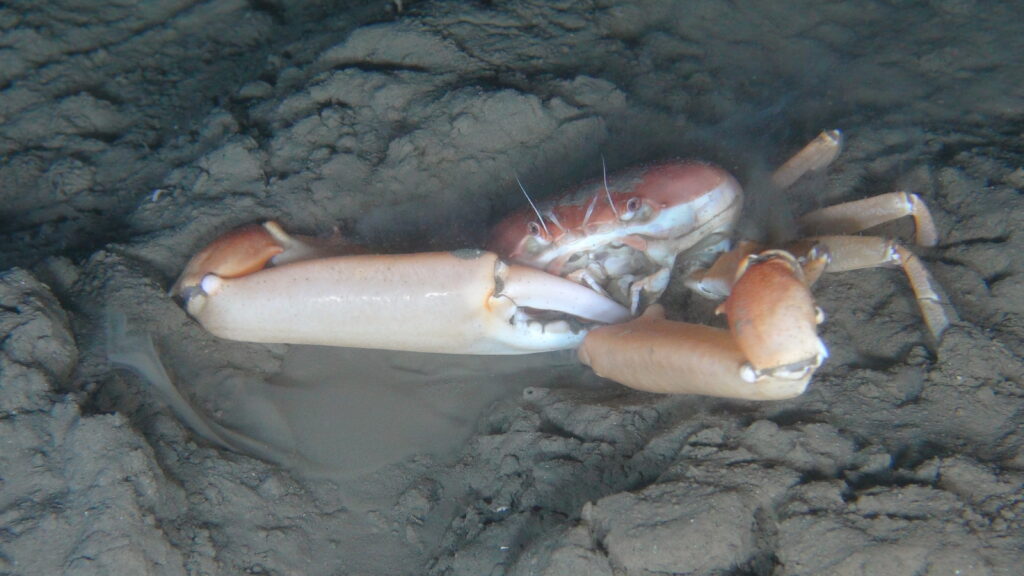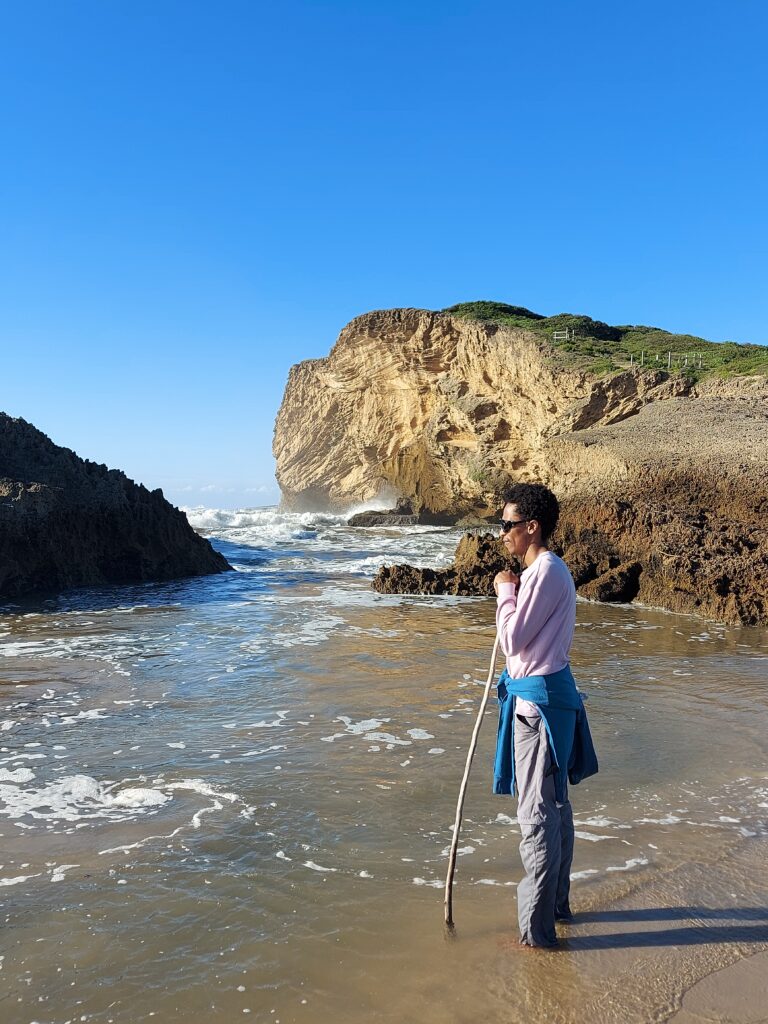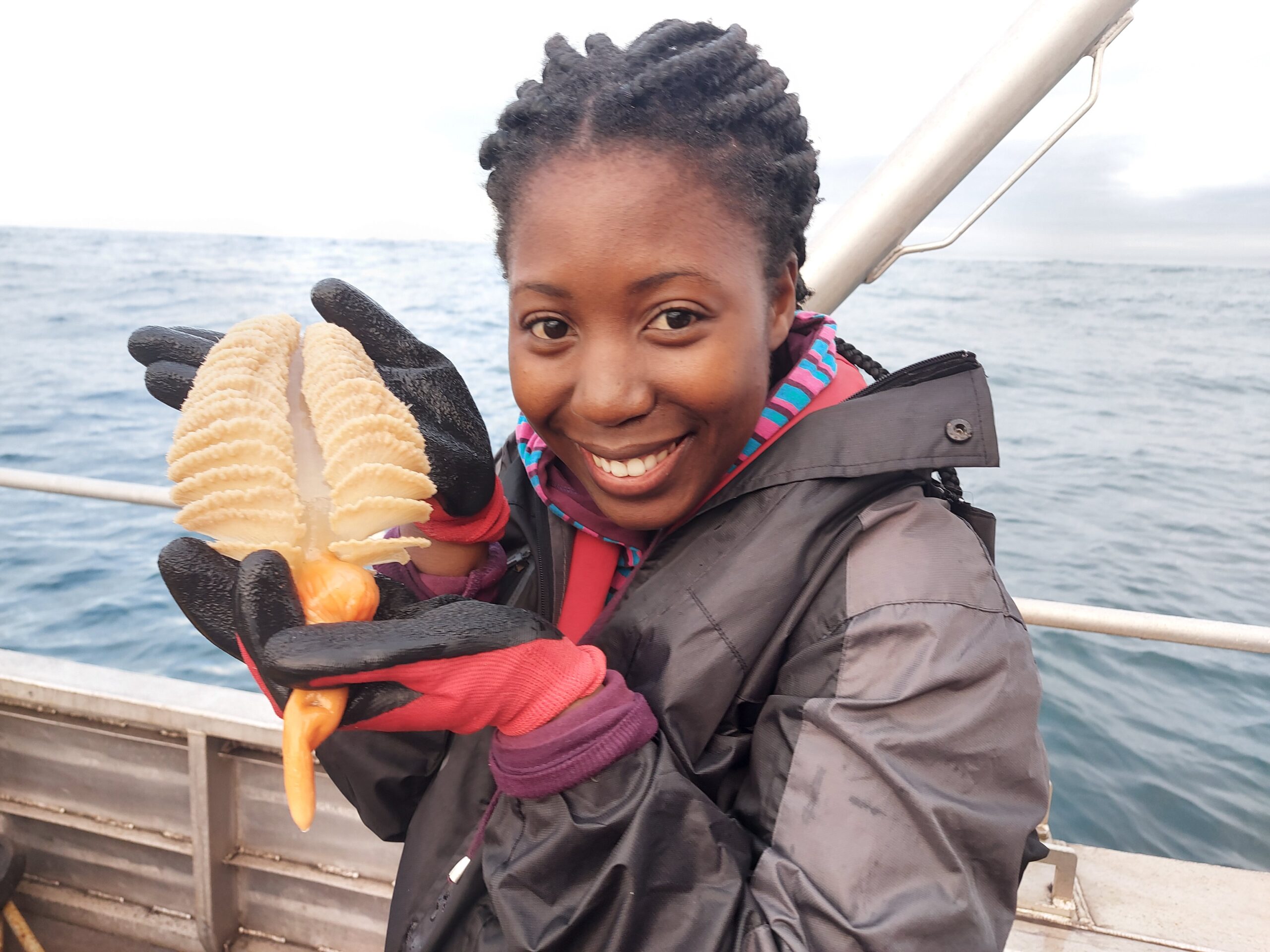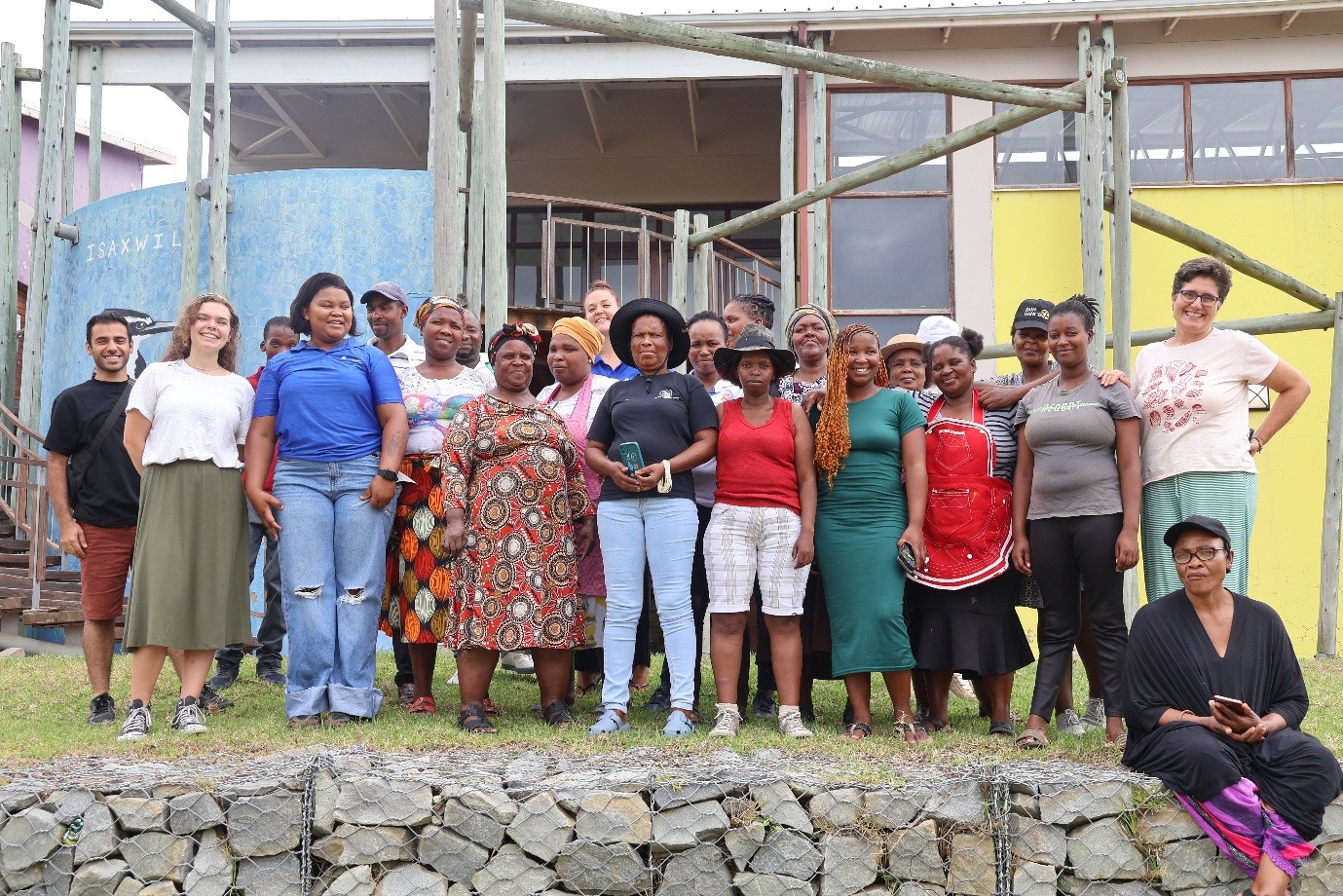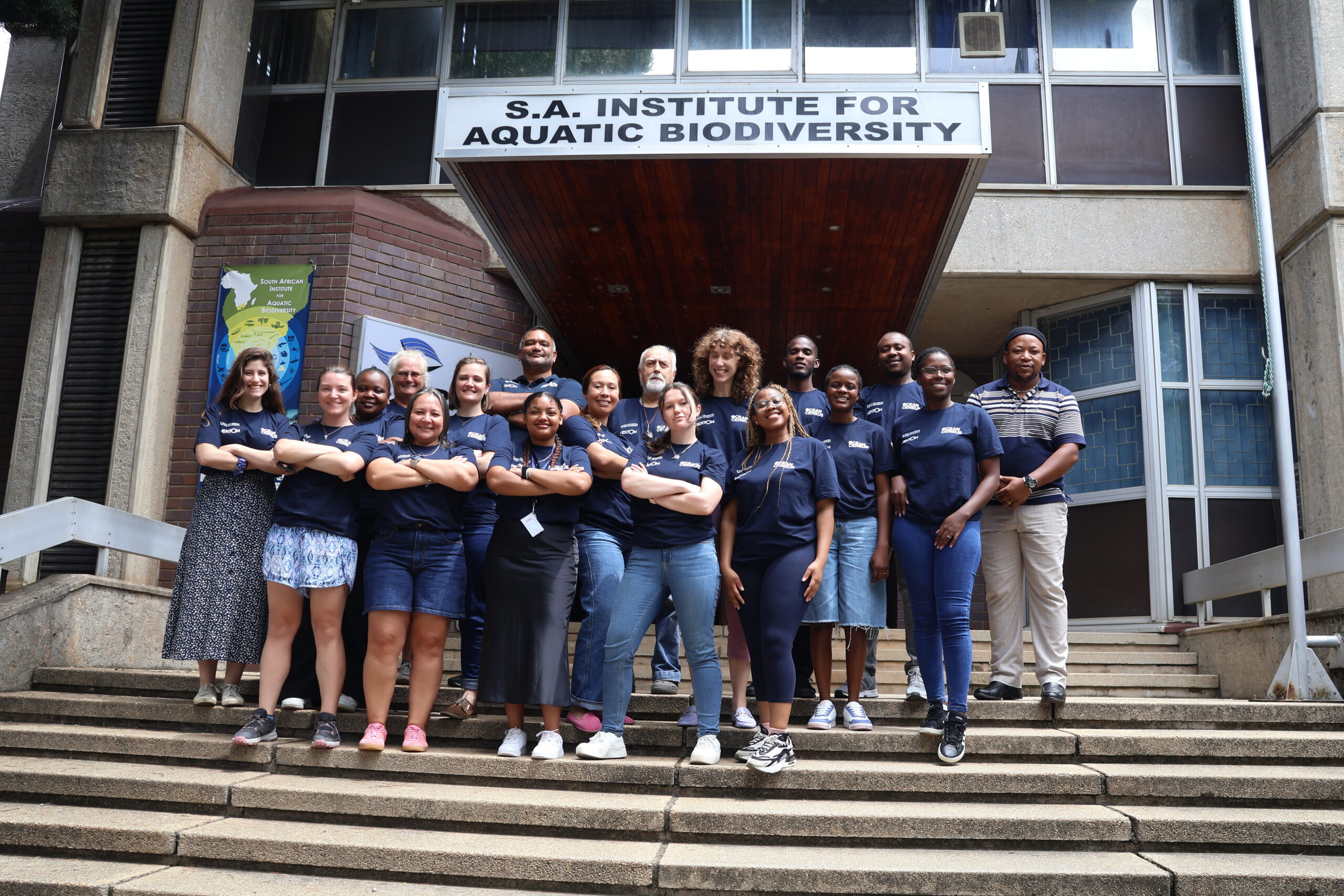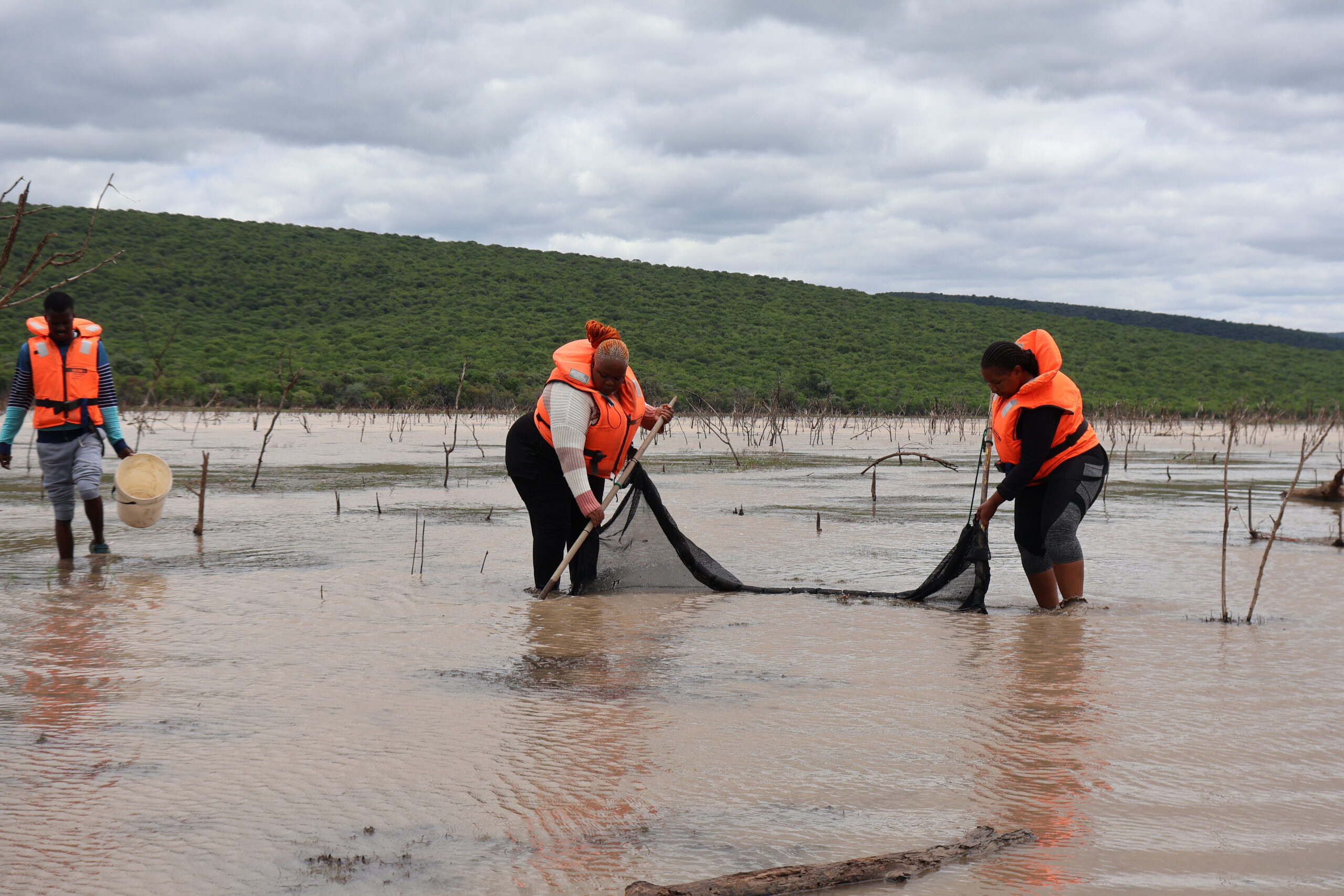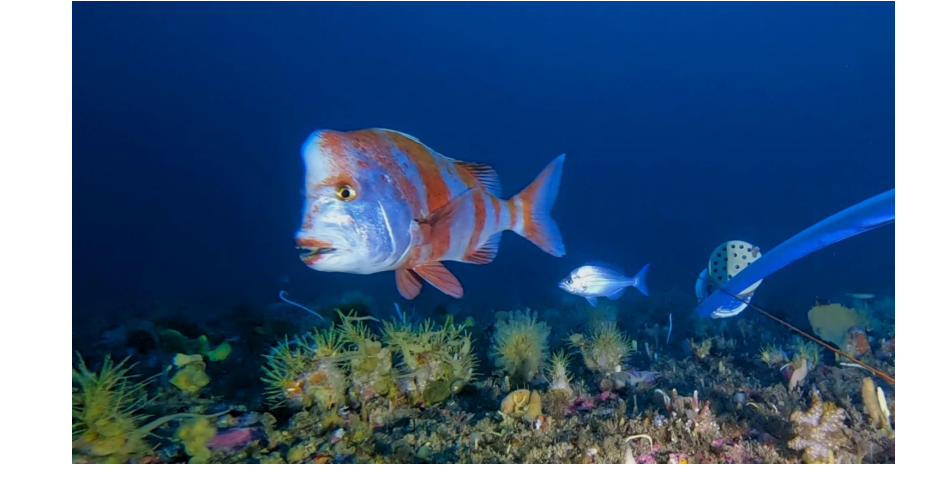For immediate release
Joint press release – SANBI, SAIAB and the One Ocean Hub
2 March 2023 – A team of emerging researchers has been conducting an offshore multi-disciplinary research expedition with the aim of fostering local and regional capacity and connections to understand and equitably manage southern Africa’s oceans. Expedition team members span seven institutions and include experienced and emerging scientists, technicians, and students from seven institutes and four provinces. The work is multi- and trans-disciplinary, spanning oceanography, geoscience, marine biology and ecology, social science, and marine environmental management. The expedition is facilitated by the South African Institute for Aquatic Biodiversity (NRF-SAIAB), a national facility of the National Research Foundation and led by the South African National Biodiversity Institute. The scientists are aboard NRF-SAIAB’s 15m Research Vessel Observer and working from the Port of East London.
Light in the Deep
In the first week, the team achieved twenty surveys by remotely operated vehicle (ROV), shedding light on areas of the seabed that have never been seen before. A new patch of muddy habitat was discovered off Port Alfred. Mud is a relatively rare ecosystem type, particularly on the current-swept eastern margin of South Africa. The muddy seabed is one of the most special habitats where tiny particles of sticky mud make homes for many creatures like soles, crabs, and tube anemones. Muds are rich habitats, and the murky waters provide good hiding places for fish, young sharks and burrowing animals. Many people think that fresh water flowing into the sea is wasted, but rivers deliver the fine sediment particles that sustain muddy habitats.
One of the most exciting discoveries was a dense field of sea pens at 75 meters. Sea pens are soft corals adapted to live in the sand. Masters student Sinothando Shibe, from the University of KwaZulu Natal, has described these amazing assemblages off East London, but this is the first time they have been found in the Amathole Offshore Marine Protected Area. Such high densities of sea pens may shelter juvenile fish and serve as nursery areas. These sea pens provide complex habitat that is sensitive to activities that can damage the seabed, such as trawling and mining. It is therefore important that they are represented in our marine protected area network.
Deep Challenges
The mighty Agulhas Current is one of the strongest in the world, making it a formidable force to work with. The young team has witnessed this power, with several dives aborted due to strong currents. ROV surveys have not been feasible beyond the outer shelf. In addition to current, the team has faced strong winds, large swells and poor visibility due to flooding in the region. Two days were spent on shore, providing opportunities to diversify research towards more social and transdisciplinary research.
Deep Connections
The team used the days ashore to advance work that is deepening our understanding of human connections with coastal and marine ecosystems. They visited traditional healers and sangomas to build on work to document the use of marine species in medicine and ritual practices. Loyiso Dunga is leading the work on Culturally Significant Areas and the team had privilege to experience one of the Eastern Cape’s most significant sites through his eyes. Gompo Rock, named for the sound of the waves against the rocky shore is also known as Cove Rock, and it is not only an iconic seascape but also a site that holds deep meaning to the Xhosa nation and others who have visited and foraged at this site over hundreds of years. The significance of this site is based on its connection to the Great Xhosa prophet, and warrior, Makhanda Ka Nxele.
‘’Growing up hearing the legend of the Great Makhanda but never having the opportunity to visit this site before, this experience of stepping in his footsteps has been a humbling experience for me, and sharing the legend with a diverse team has been deeply moving for many of us’’ said Loyiso Dunga, who is funded by Parley for the Oceans.
Editor’s Notes
The cruise is sponsored by One Ocean Hub, an international programme of research for sustainable development, working to promote fair and inclusive decision-making for a healthy ocean. The One Ocean Hub brings together people and disciplines to learn from each other and collaboratively influence decisions and practices shaping the future of the ocean for justice and sustainability. The cruise is an initiative of the Capacity Strengthening component of the Hub. Last year, hub researchers and their collaborators undertook a study to understand the challenges and solutions to developing capacity for deep-sea research and management in South Africa. One of their recommendations was to hold dedicated in-country expeditions using available or locally developed technology under local conditions. This can provide relevant opportunities for more researchers and is a valuable addition to the more common approach where one or two scientists are able to participate in an international expedition with equipment that is usually not available in-country.
The team includes researchers from two projects funded through ACEP, Deep Connections, and Agulhas Bank Connections. These projects are improving the classification and mapping of marine ecosystems, advancing knowledge about connectivity in the marine realm and building multi-disciplinary research teams that can work together for integrated research that serves society.
Contact:
For further information and other media queries please contact:
Prof Kerry Sink, SANBI, Tel 0828310536, k.sink@sanbi.org.za
Mr Loyiso Dunga, Parley for the Oceans and SANBI, loyiso@parley.tv, Tel 0785153487
About the One Ocean Hub: The One Ocean Hub is led by the University of Strathclyde (Glasgow, UK), and it has 18 partner organisations and 21 research partners across the world. The Hub is funded by UK Research and Innovation (UKRI) through the Global Challenges Research Fund (GCRF) – a key component in delivering the UK AID strategy that puts UK-led research at the heart of efforts to tackle the United Nations Sustainable Development Goals.
About SANBI: The South African National Biodiversity Institute (SANBI) is mandated to monitor and report on the status of the Republic’s biodiversity. Its activities include undertaking and promoting research on indigenous biodiversity and its sustainable use; establishing and managing collections of plant and animal specimens; managing and maintaining all National Botanical Gardens, with their facilities for horticultural display, environmental education, visitor amenities and research; collecting and disseminating information about biodiversity; assisting in the development of a national biodiversity framework, including bioregional plans and strategies; and coordinating programmes in conservation and sustainable use of indigenous biological resources and the rehabilitation of ecosystems.
About Parley: Parley for the Oceans is a non-profit environmental organization that focuses on the protection of the oceans.
About SAIAB: The South African Institute for Aquatic Biodiversity (SAIAB) contributes to two National Operation Phakisa Labs through which South Africa has identified the potential to develop the Biodiversity Economy and the Blue Economy. With a significant amount of funding from the Department of Science and Innovation and the National Research Foundation, over the last 10 years, SAIAB has developed several high-level platforms capable of undertaking research in various environments which have positioned the Institute as an innovative leader in aquatic biodiversity research. All of SAIAB’s activities – research, student supervision, and platform provision – support the Higher Education sector in the education, training, and development of the aquatic managers and researchers of the future.
Images and suggested captions:
